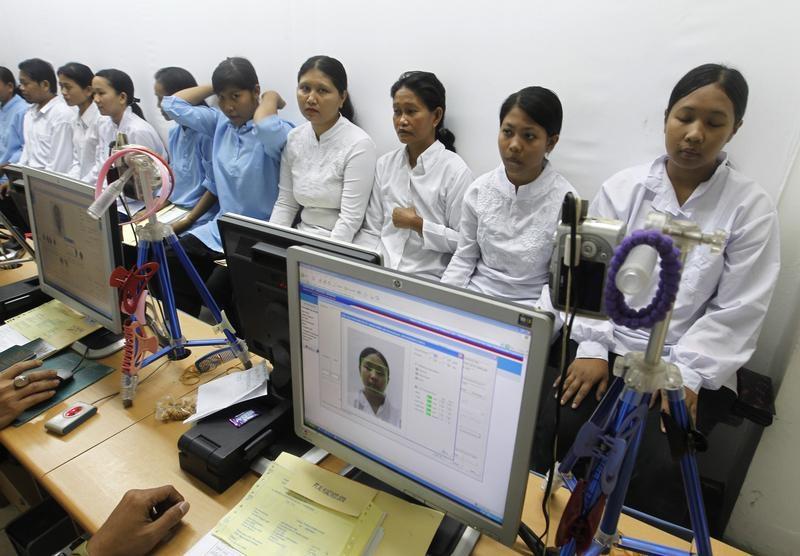“I started ironing clothes and he started pulling me to try and rape me. I was lucky the younger brother came back and rang the doorbell–he then left,” 21-year-old “Basma N.,” (not her real name) told me. In February in Dar es Salaam, Tanzania’s commercial capital, Basma told me that her male employer’s brother attempted to rape her twice in 2015 when she was working in Oman as a domestic worker. When conducting research on abuse of Tanzanian domestic workers in Oman and the United Arab Emirates (UAE), I spoke to 19 former domestic workers who said their employers or other male members of the household sexually harassed or assaulted them.
The sexual harassment against and by celebrities has received new and prominent recognition. But the experiences of less privileged groups–particularly domestic workers, including the pervasive threat of sexual assault, have largely remained invisible.
The Middle East’s Gulf region has an estimated 2.4 million migrant domestic workers, most from Asia and Africa. They fall under the abusive kafala (visa-sponsorship) system, not allowed to leave or change employers without their initial employer’s consent. If they do, they can be arrested and punished for “absconding” with fines, detention and deportation.
About the Author:
Rothna Begum is the Middle East and North Africa women’s rights researcher at Human Rights Watch.
Isolating and harsh working conditions leave domestic workers vulnerable to sexual abuse. Almost all of the 50 Tanzanian domestic workers I interviewed said their employers confiscated their passports, forced them to work seven days a week, and almost half said their employers forcibly confined them to their homes or residential compounds, making escape difficult. Most women said their employers restricted their communication for weeks or months, preventing them from seeking help from the outside world. Many also described how they lived with little to no privacy–some sleeping on the floor of storage rooms or living rooms, or without locks or keys to their bedroom doors.
The women who described sexual harassment and assault said that male family members groped them, exposed themselves, chased them around the house, and entered their rooms late at night. Several described attempted rape. Twenty-year-old “Jamila A.” said all the men in the family she worked for in Oman, “even the old man,” assaulted her and hid her room keys so she could not lock her bedroom door.
“Anisa L.,” 28, said her employer in Dubai repeatedly exposed his genitals to her and a fellow domestic worker. “He would take down his trousers, and would say: ‘Look, did you see? it is nice?’ … Always doing that, just pulling down his pants. When we saw him, we would start running.”
The women also said the men harassing them became violent when they refused their advances, threatened to dismiss them or make false claims to their wives that the women had seduced them. Several women said they could not communicate with their female employers due to language barriers or feared dismissal if they complained. If they did complain, their female employers did not believe them, placed the burden on them to avoid the harassment, or fired them. Many women said when they asked to leave, their employers or agents demanded repayment of recruitment costs, often far more than they had earned.
“Hidaya Z.,” 30, went to file a complaint with the Oman police in 2016 after a male member of the family she was working for sexually assaulted her. The police told her that her employer had pressed charges against her for running away. They told her to pay a fine of 200 OMR ($520) or spend three months in jail. Oman does not criminalize non-penetrative sexual assault or harassment, as in her case.
A former official at the Tanzanian embassy in Oman said none of the rape cases reported to the police by domestic workers they assisted had moved forward, either because the women refused to undergo forensic tests, as the doctor was a man, or the police, after questioning the women, did not believe they had been raped. In the Gulf region, when authorities do not believe the claim, reporting a rape can be considered a confession of consensual sexual relations, prompting charges of zina (sexual relations outside of marriage) against the rape victim.
Compounding the lack of justice abroad, due to the stigma, migrant domestic workers rarely reported sexual violence when they returned to Tanzania, suffering in silence. “Atiya Z.” told me that while she was in Oman her employer beat and raped her anally to punish her for falling sick, then put her on a flight back to Tanzania the next day: “I was scared, traumatized, and didn’t know who to speak to.” While she reported the beating and other abuse when she returned, she had not told anyone about the rape until she spoke to me.
While the #MeToo outcry is exposing sexual harassment mostly in the West, we should support women across the globe, including those whose workplaces are their abusers’ homes. Oman, the UAE, and other Gulf states should reform the laws and policies that facilitate such abuse against migrant domestic workers and stop treating sexual violence survivors as criminals. Only then might “Basma,” “Atiya,” “Jamila,” “Anisa,” “Hidaya,” and countless other women work free of the threat of sexual violence and impunity for their attackers.
Source: The New Arab

